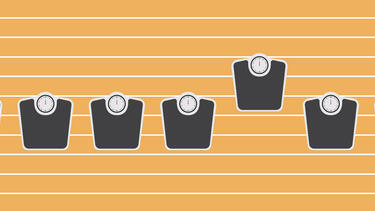Behavioral
Can Holiday Shopping Boycotts Make a Difference?
We asked Yale SOM’s Zoe Chance, an expert on consumer behavior and persuasion, what makes boycotts effective and how companies should respond.

How Can You Make Incentives More Effective? Make Them Opaque.
A study from Yale SOM’s Florian Ederer suggests that when individuals or organizations don’t fully understand how they’re being ranked, they’re likely to work harder for higher ratings.

The Housing Boom Is Already Gigantic. How Long Can It Last?
The best explanation for why prices go up, Yale's Robert Shiller writes, may be that we expect them to—until we don’t.

The Roots of Economic Inequality
A new study co-authored by Yale SOM's Michael Kraus shows that deeply ingrained social behaviors play a role in perpetuating economic inequality.

Experiment to Save an Endangered Fish Holds Lessons for Policymakers
Randomized control trials may offer a tool for cost-effective, evidence-based policy making and perhaps even a deeper understanding of human behavior.

For Motivation, Dieters Look to the ‘Biggest Loser’
When you’re trying to lose weight, boost your grades, or improve your golf game, is comparing yourself to a top performer discouraging or motivating?

Does Data Mean Insight?
Stephan Gans, chief insights and analytics officer for PepsiCo, makes the case for data and judgment.

How A Sequence of Decisions Affects Later Shopping Choices
When you’re picking out a jacket or a sofa, does it matter in what order you decide on its color, style, and material? New research suggests that the sequence may change how you categorize the object and how you decide to replace it.

Does Automatic Enrollment into Retirement Plans Hurt Household Finances?
When companies automatically enroll employees in retirement plans, the employees save more money for their later years. But the extra savings may exact a pre-retirement toll on their finances.

How Do Investors Respond to Uncertainty?
Conventional wisdom says that uncertainty is bad for markets. But Yale SOM’s Stefano Giglio and his co-authors found that investors are willing to pay a premium to protect themselves only against actual market volatility, not mere uncertainty.

Three Questions: Prof. Nathan Novemsky on Gifts and Resolutions
Yale’s Nathan Novemsky explains how to use behavioral research to give better gifts and follow through on New Year’s resolutions.
